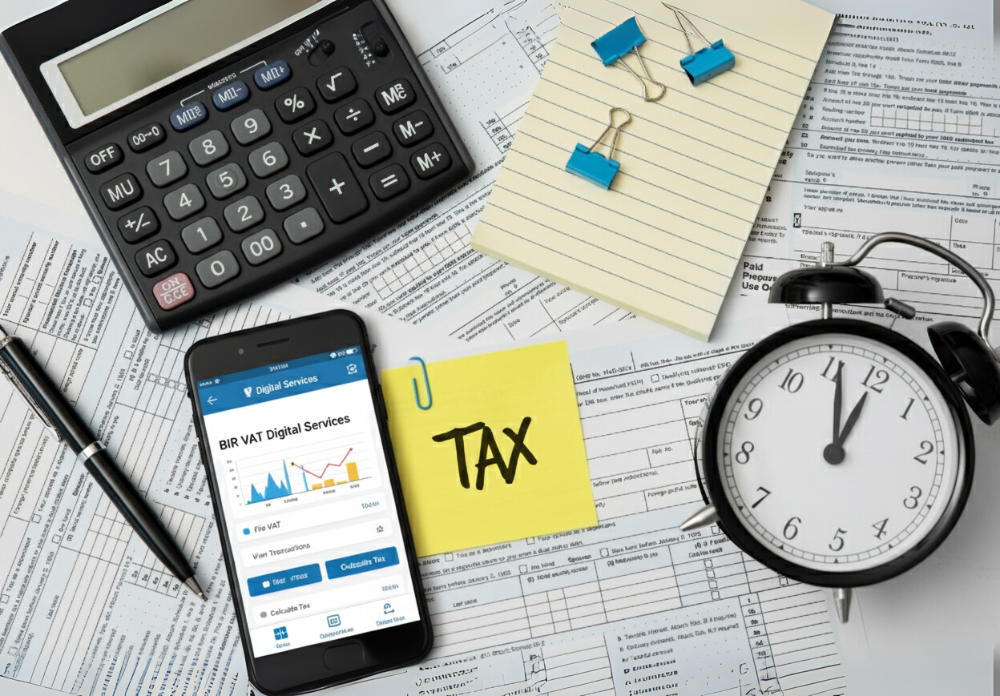The 13th-month pay is a highly anticipated benefit for employees in the Philippines, especially as the holiday season approaches. It serves as a financial boost that helps workers manage year-end expenses, gift-giving, and holiday festivities. However, questions often arise regarding eligibility, computation, taxation, and distinctions between the 13th-month pay and the Christmas bonus.
This guide will clarify everything about the 13th-month pay in the Philippines, helping both employers and employees better understand their obligations and entitlements.
What is the 13th-Month Pay?
The 13th-month pay is a mandatory benefit in the Philippines, introduced through Presidential Decree No. 851 in 1975. It requires employers to provide an additional payment equivalent to one-twelfth (1/12) of an employee’s basic salary for the calendar year.
This benefit is not a Christmas gift or discretionary bonus—it is required by law. Its main purpose is to recognize employees’ hard work throughout the year and help them financially during the holiday season.
Who Receive 13th Month Pay in the Philippines?
Under the 13th month pay law, any employee in the private sector is entitled to receive 13th-month pay as long as they meet the following criteria:
1. Rank-and-File Employees
All rank-and-file employees, regardless of their employment status—whether regular, probationary, contractual, or casual—are eligible to receive the 13th-month pay.
2. Worked for at Least One Month
Employees who have worked for at least one month during the calendar year are entitled to this benefit, even if they have resigned, were terminated, or are no longer employed at the time of payment.
3. Private Sector Workers
The 13th-month pay applies to employees in the private sector in the Philippines. This excludes government workers who are governed by different rules and benefit structures.
4. Employees with a Fixed Basic Salary
Employees receiving a fixed base salary or earning a monthly salary are entitled to the 13th-month payment.
Who is Exempted from the 13th-Month Pay?
While the 13th-month pay is legally required, some workers and situations are exempted. Below is a breakdown of the exemptions:
1. Government Employees
Employees working for the government are not covered under Presidential Decree No. 851. Instead, they receive other benefits, bonuses, and allowances under separate laws and policies.
Government agencies, including national and local government offices, government-owned and controlled corporations (GOCCs), and other public institutions, follow a different structure for employee compensation.
2. Household Helpers (Kasambahays)
Under the current law, household helpers or “kasambahays”—such as maids, drivers, and gardeners—are not automatically entitled to the 13th-month pay. However, many employers in the Philippines voluntarily provide this benefit as a goodwill gesture.
It’s important for employers hiring household helpers to clarify employment terms, as the domestic worker law (Republic Act 10361) sets other minimum standards for their compensation.
3. Employees Paid on Commission Basis
Employees earning purely on a commission basis, without a fixed base salary, are exempt from receiving the 13th-month pay.
For example:
- Sales agents whose earnings are pay based entirely on commission are not entitled to the 13th-month pay.
- However, if an employee receives a regular basic salary in addition to commission, the 13th-month payment is calculated based on the fixed salary.
4. Freelancers and Independent Contractors
Freelancers and independent contractors are not classified as employees under Philippine employment law. Since they do not operate under an employer-employee relationship, they are not entitled to the 13th-month pay.
Instead, freelancers work based on specific contracts and terms they negotiate with clients.
5. Managerial Employees
Managerial employees, defined as those holding supervisory roles and exercising management powers, are typically exempt from receiving the 13th-month pay.
However, this exemption applies only if:
- They are not considered rank-and-file employees.
- Their employment terms do not include provisions for the 13th-month pay.
Employers must carefully assess whether managerial employees fall under this exemption based on their roles and compensation structures.
When is the 13th-Month Pay Given?
Deadline for Payment
Under the law, employers are required to provide the 13th-month pay to their employees on or before December 24 of each year.
This timing aligns with the holiday season, ensuring employees receive their benefit in time for Christmas. However, employers may also opt to release the 13th-month pay earlier, especially if they want to spread out payroll expenses.
Two Installments Option
Some companies choose to split the 13th-month pay into two installments:
- First half: Released around June or mid-year.
- Second half: Given on or before December 24.
Employers who adopt this option must ensure that the total amount meets the correct computation for the year.
How is the 13th-Month Pay Calculated?
The computation for the 13th-month pay is based on the employee’s total basic salary earned within the calendar year.
The formula is as follows:
13th-Month Pay = Total Basic Salary Earned During the Year ÷ 12
Example:
An employee earns PHP 20,000 monthly as their basic salary and works for the full 12 months:
13th-Month Pay = (20,000 x 12) ÷ 12 = PHP 20,000
Pro-Rated 13th-Month Pay
If an employee did not work the full year, their 13th-month pay is pro-rated based on the number of months worked.
Formula for Pro-Rated Computation:
Prorated 13th-Month Pay = (Total Basic Salary Earned ÷ 12) x Months Worked
Example:
An employee earning PHP 15,000 per month worked for 6 months:
Prorated 13th-Month Pay = (15,000 x 6) ÷ 12 = PHP 7,500
Employers must calculate 13th-month pay accurately for partial-year employees to ensure compliance with the 13th month regulations.
Is the 13th-Month Pay Taxable?
The 13th-month pay is not taxable if the total amount, combined with other bonuses, does not exceed PHP 90,000 for the year.
If the 13th-month payment and other bonuses exceed PHP 90,000, the excess amount becomes subject to income tax as per the Bureau of Internal Revenue (BIR) rules.
Employers must ensure proper computation and tax compliance to avoid penalties.
13th-Month Pay is Mandatory, Unlike the Christmas Bonus
While the 13th-month pay is mandatory, a Christmas bonus is not required by law.
Aspect | 13th-Month Pay | Christmas Bonus |
Legality | Required by law | Required by law |
Computation | Based on total basic salary | Amount and criteria decided by employer |
Payment Date | On or before December 24 | Typically around Christmas |
Taxability | Exempt up to PHP 90,000 | Fully taxable |
While many employers offer 13th and 14th month bonuses as incentives, the Christmas bonus remains discretionary.
What Happens if Employers Fail to Pay the 13th-Month Pay?
Employers who fail to pay the 13th-month pay may face penalties under the law.
Consequences Include:
- Monetary Penalties: Employers must pay the outstanding amount and additional fines.
- Administrative Sanctions: Companies may face suspensions or legal action from the Department of Labor and Employment (DOLE).
- Employee Complaints: Affected employees may file formal complaints against non-compliant employers.
To avoid these issues, employers in the Philippines must prepare for the 13th month by budgeting appropriately and ensuring accurate payroll processes.
Are Contractual and Probationary Employees Entitled to the 13th-Month Pay?
Yes, contractual and probationary employees are entitled to receive 13th-month pay as long as they meet the following conditions:
- They have worked for at least one month during the year.
- They have a clear employer-employee relationship.
However, independent contractors (e.g., freelancers or consultants) are not covered under the 13th month pay law because they do not have an employer-employee relationship.
Employers must carefully determine employment classifications to comply with the 13th month benefit requirements.
13th-Month Pay in Other Countries
While the 13th-month pay originated in the Philippines, other countries have adopted similar practices, often referred to as a “13th-month bonus” or “13th salary.”
Countries That Have 13th-Month Pay:
- Philippines – Legally required.
- Indonesia – Known as “Tunjangan Hari Raya” (THR), mandatory.
- Brazil – Called “13th salary,” legally mandated.
- Italy and Spain – Often included in collective bargaining agreements.
While the practice varies, the 13th-month payment remains customary in many countries to support employees during the year-end holidays.

Philippines Official List of Public and Non-Working Holidays 2026 – 2027
Planning ahead? Get the full guide to Filipino holidays in 2026 and 2027, including public, non-working, special working, and weekend holidays in the Philippines!
Key Tips for Employers to Prepare for the 13th-Month Pay
1. Understand Who is Entitled to the 13th-Month Pay
Make sure your employee records clearly distinguish workers in eligible roles. Independent contractors or those working purely on commission without a fixed basic salary are not entitled to the benefit.
2. Set a Budget for the 13th-Month Pay Early in the Year
One of the best practices for employers is to plan for the 13th-month payment early. Since this benefit is mandatory, businesses must include it as part of their annual expenses.
Practical Steps:
- Allocate funds monthly to avoid financial strain at the end of the calendar year.
- Create a payroll budget that factors in all employee salaries, bonuses, and year-end benefits.
By setting aside funds throughout the year, you ensure that your company can comfortably provide 13th-month pay without disrupting cash flow.
3. Accurately Compute the 13th-Month Pay
The computation of the 13th-month pay is straightforward but must be done carefully to avoid errors.
The basic formula is:
13th-Month Pay = Total Basic Salary Earned / 12
- Basic salary refers to the fixed amount the employee receives, excluding overtime pay, allowances, and other benefits.
- If an employee worked for only part of the year, the 13th-month pay must be prorated.
Example Computation:
If an employee earns PHP 20,000 per month and has worked the full year:
13th-Month Pay = (20,000 x 12) / 12 = PHP 20,000
For an employee who worked only six months at PHP 20,000 per month:
Prorated 13th-Month Pay = (20,000 x 6) / 12 = PHP 10,000
Employers must ensure accurate records of work periods to compute 13th-month pay correctly.
4. Be Aware of Tax Implications
Inform employees about taxation rules so they understand their final 13th-month payment. Transparency fosters trust and prevents disputes.
5. Set Deadlines and Communicate the Payment Date
Under the 13th month pay law, employers are required to release the 13th-month pay to eligible employees on or before December 24 each year.
Practical Steps:
- Prepare payroll systems and allocate funds at least a month in advance.
- Communicate the 13th-month payment date to employees early to set expectations.
Employers can also choose to release the 13th-month pay in two installments—one mid-year (e.g., June) and the other before Christmas.
6. Ensure Compliance with the Law in the Philippines
Compliance is crucial for employers to avoid penalties. Failure to provide 13th-month pay can result in legal consequences, such as:
- Administrative fines
- Employee complaints filed with the Department of Labor and Employment (DOLE)
- Business permit suspension for severe violations
Tip: Regularly review labor regulations and consult legal or HR professionals to ensure your company complies with the 13th-month pay mandatory guidelines.
7. Offer 13th-Month Pay Early to Boost Employee Morale
While the law states that the 13th month pay must be given by December 24, some employers opt to release it earlier. Doing so can:
- Help employees plan for holiday expenses
- Boost workplace morale and employee satisfaction
Additionally, offering a Christmas bonus (optional) alongside the 13th-month pay is a great way to show appreciation to employees.
8. Utilize Payroll Systems to Streamline Payments
Manual computations for the 13th-month pay can be time-consuming, especially for companies with large workforces. Investing in payroll systems or software can:
- Automate the computation process
- Ensure accurate payment based on employee records
- Prevent errors in 13th month payments and tax deductions
Tip for Employers: Modern payroll systems ensure efficiency and compliance, saving time and reducing stress during year-end preparations.
Common Questions Employers Have About the 13th-Month Pay
1. Is the 13th-Month Pay Mandatory in the Philippines?
Yes, the 13th-month pay is mandatory for eligible employees in the Philippines under the 13th month pay law.
2. Are Commission-Based Employees Entitled to the 13th-Month Pay?
Commission-based employees are entitled to receive a 13th month benefit if they have a fixed basic salary. However, purely commission-based or freelance workers without a guaranteed salary may not qualify.
3. Is the 13th-Month Pay the Same as a Christmas Bonus?
No, the 13th-month pay is mandatory, while the Christmas bonus is a voluntary benefit offered at the employer’s discretion.
4. What Happens If an Employer Fails to Pay the 13th-Month Pay?
Failure to provide 13th-month pay can lead to penalties, including fines or legal action by the DOLE. Employers must strictly comply with the law.
Final Thoughts
The 13th-month pay is more than just a mandatory benefit—it is a reward for employees’ hard work throughout the year. For employers, it is a legal requirement that requires careful planning, budgeting, and execution. By understanding who is entitled to receive 13th month, how to calculate 13th-month pay, and ensuring compliance, businesses can foster a positive workplace environment and avoid penalties.
Implementing the practical tips in this guide—such as budgeting early, automating payroll, and ensuring compliance—will make managing the 13th-month pay smoother for employers.
For reliable and professional payroll management, iScale Solutions is here to help you streamline your processes and provide peace of mind. Reach out today to learn how we can support your payroll and HR needs.


